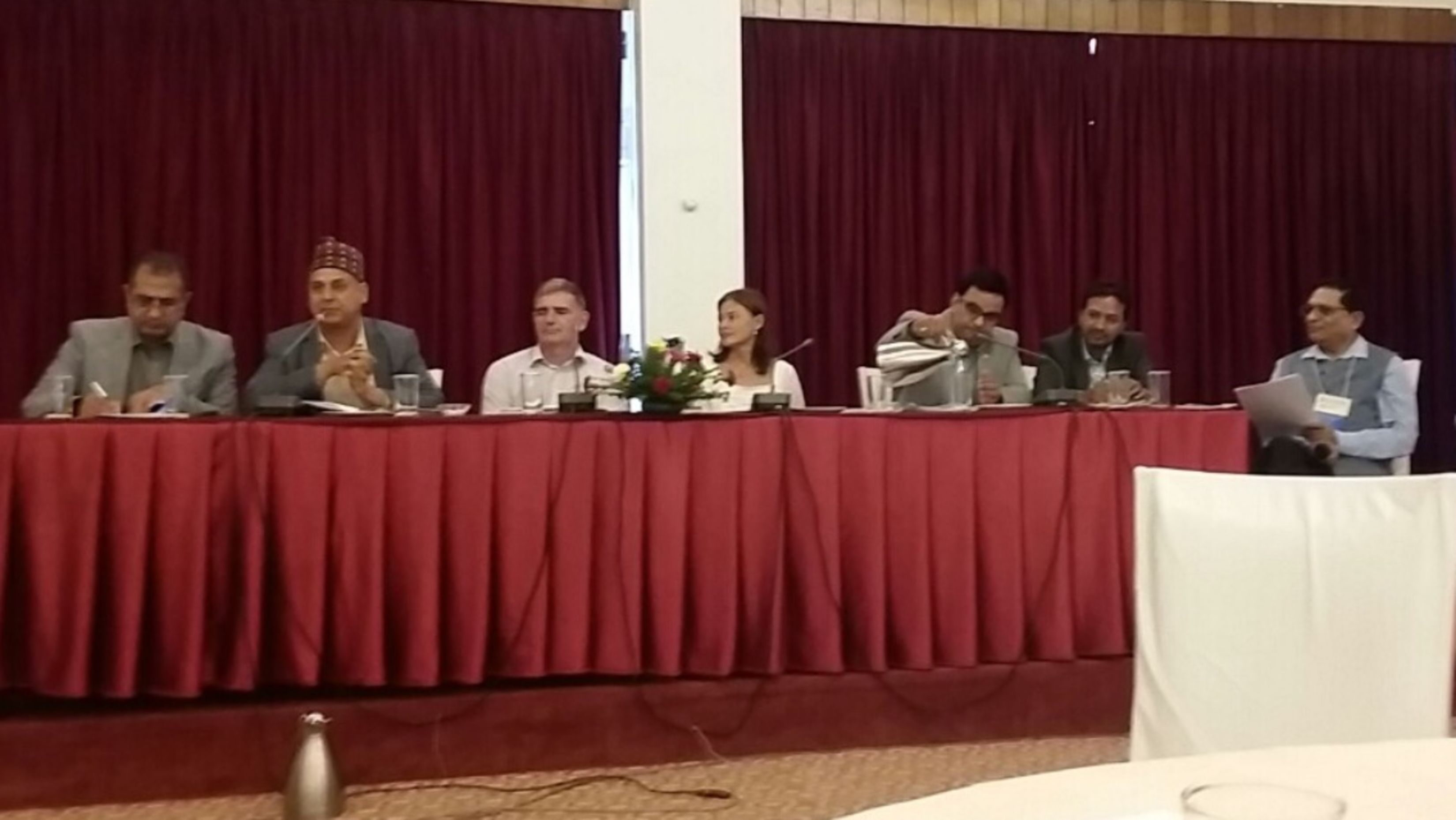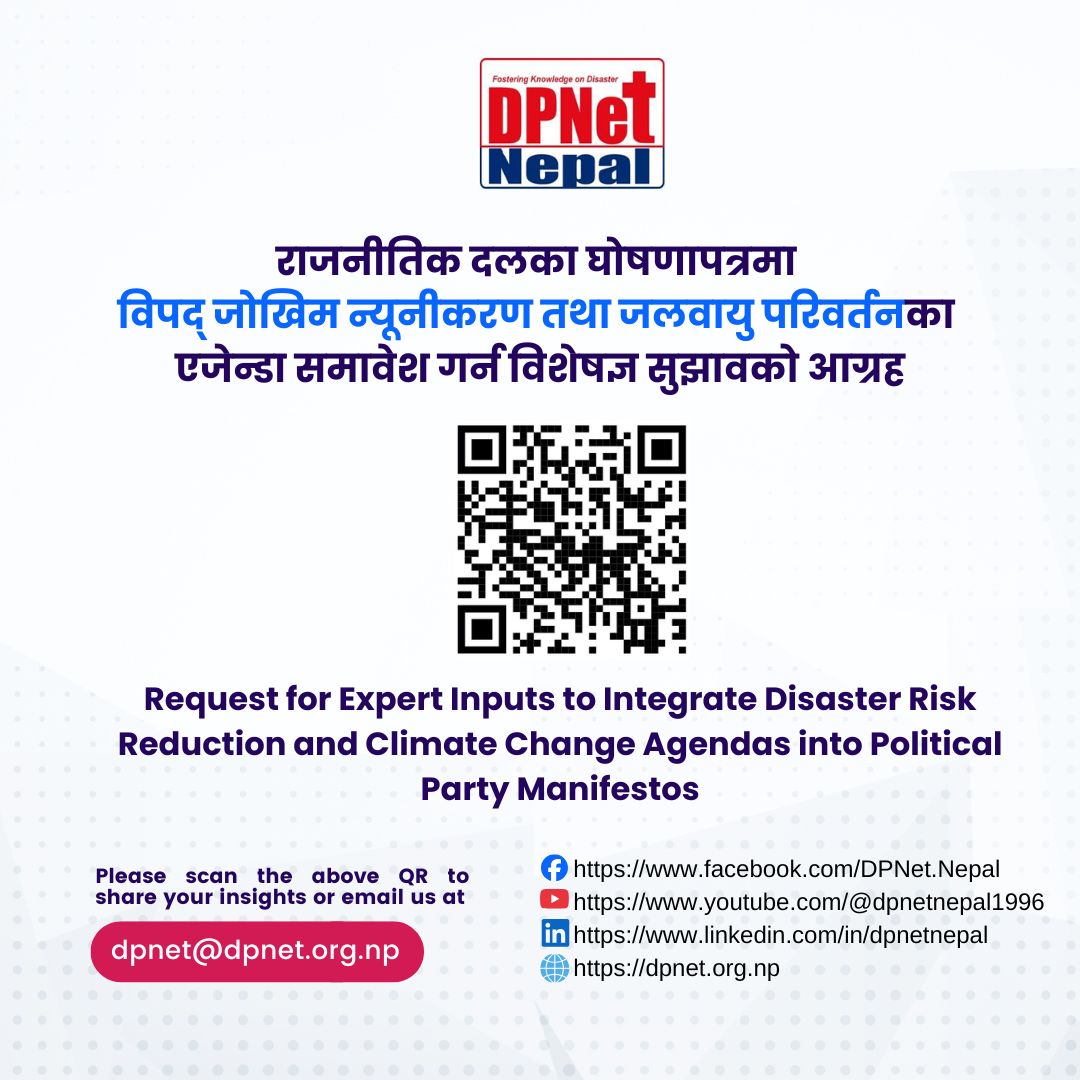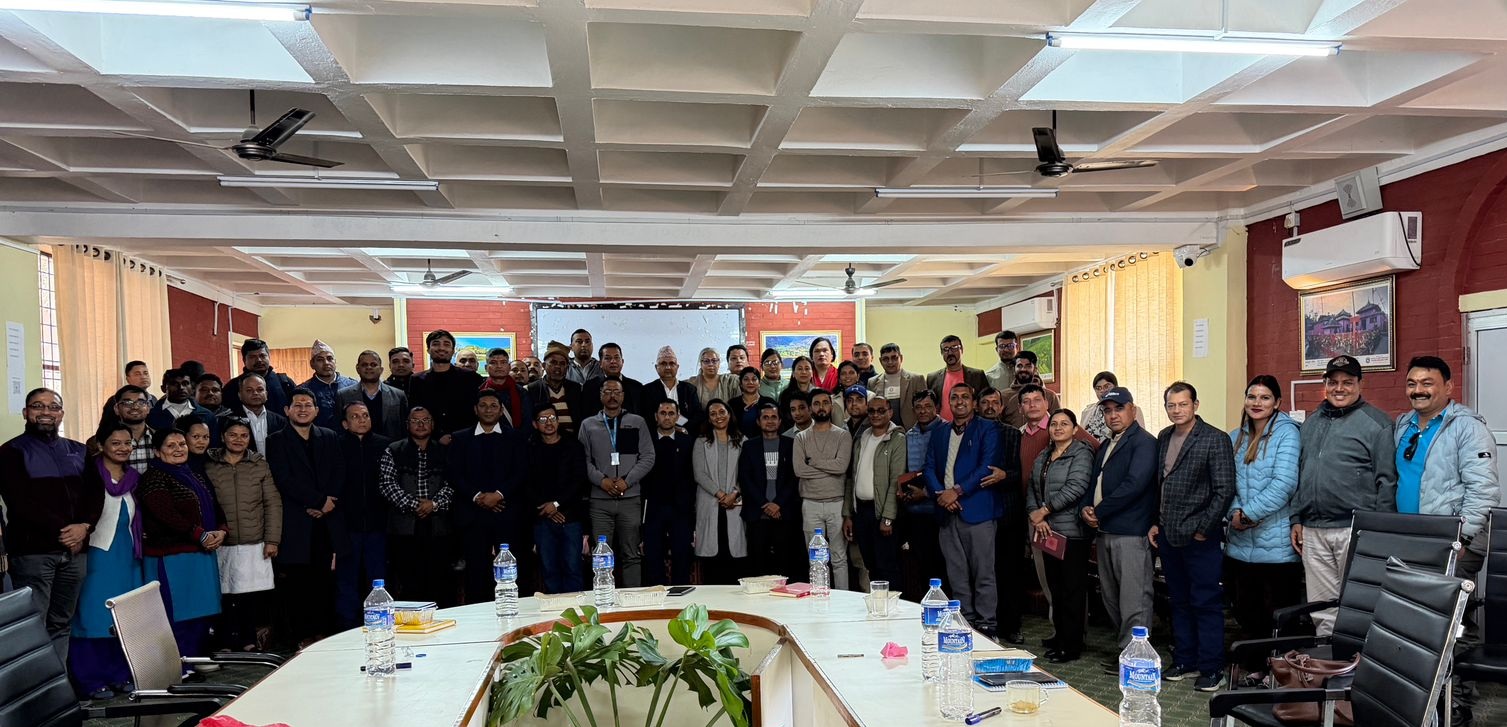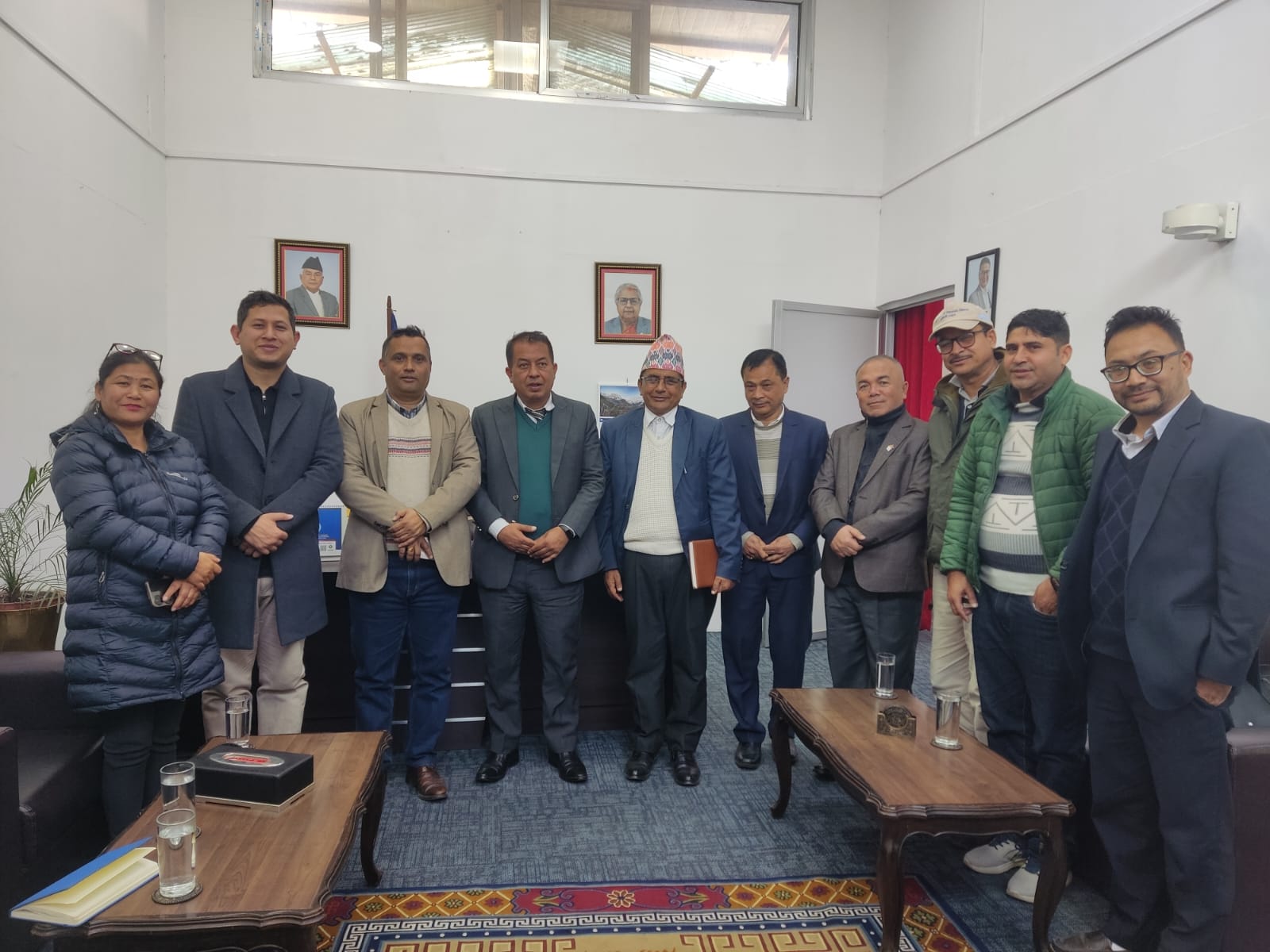Country Consultation Program on Koshi Disaster Risk Reduction Knowledge Hub (KDKH) Facilitates Collaboration and Resilience Building

Country Consultation Program on Koshi Disaster Risk Reduction Knowledge Hub (KDKH) Facilitates Collaboration and Resilience Building
Kathmandu, Nepal - On September 23rd and 24th, 2019, ICIMOD, in partnership with the National Planning Commission, DPNet-Nepal, Tribhuvan University, International Water Management Institute, Lutheran World Relief, UNDP, and UNICEF, successfully organized a two-day country consultation program titled "Koshi Disaster Risk Reduction Knowledge Hub (KDKH) Nepal Country Consultation: Building a resilient Koshi basin." The program aimed to strengthen the Koshi Disaster Risk Reduction Knowledge Hub, a collaborative initiative among the basin member countries of China, Nepal, and India to collectively address disasters and their management. The Australian Aid and the Swiss Agency for Development and Cooperation (SDC) provided crucial support for the program.
During the consultation program, esteemed representatives shared their insights and perspectives on the importance of the KDKH and its potential contributions. Mr. Shambu Prasad Regmi, Under Secretary and Chief of the National Operation Emergency Center at the Ministry of Home Affairs, highlighted the significance of the Disaster Risk Reduction National Strategic Plan of Action (2018-2030) in addressing river-related disasters and mitigating their impact.
Mr. Ram G. Kharbuja, Joint Secretary at the Ministry of Energy, Water Resources, and Irrigation, emphasized the role of the KDKH in fostering trust-building among the Koshi River Basin countries. Mr. Krishna Hari Pushkar, Secretary at the Ministry of Internal Affairs and Law of Province 2, expressed the need to make technical publications and knowledge accessible, suggesting a potential partnership between the KDKH and Province 2 to enhance the usability of the information.
Dr. Dil Bahadur Gurung, a Member of the National Planning Commission, expressed the commission's support for the establishment of the country chapter for the Koshi DRR Knowledge Hub. Mr. Badri Dhungana, Joint Secretary at the Ministry of Forests and Environment, stressed the importance of integrating development plans with disaster risk reduction efforts. He envisioned the KDKH functioning as a think tank, collaborating with stakeholders in Nepal and neighboring countries to support development in the Koshi Basin.
Dr. David Molden, Director General of ICIMOD, emphasized the need for collaboration across sectors and boundaries to effectively reduce disaster risks, stating that disasters do not recognize administrative boundaries. He highlighted the potential role of the Koshi DRR Knowledge Hub in promoting cross-boundary collaboration.
Mr. Raju Thapa, General Secretary of DPNet Nepal, shared insights about the "Online Resource Center" of DPNet and expressed a commitment to share knowledge, experiences, and expertise gained from the center with the Koshi DRR Knowledge Hub. He also provided an overview of the "Online Indo-Nepal Water Dialogue Group," which was established to facilitate information sharing and trust-building among civil society organizations operating in the Koshi River basin in both countries. Mr. Thapa pledged to raise awareness among DPNet member organizations about the message and importance of the KDKH, encouraging their active participation in the hub.
The consultation program concluded with the expectation that each country chapter would share its progress and discuss challenges during the Annual KDKH Dialogue scheduled for December 2019 in Kathmandu. The workshop fostered collaboration and set the stage for continued efforts to strengthen disaster risk reduction and resilience building in the Koshi Basin.











